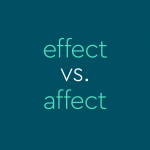libel
noun
- defamation by written or printed words, pictures, or in any form other than by spoken words or gestures.
- the act or crime of publishing it.
- a formal written declaration or statement, as one containing the allegations of a plaintiff or the grounds of a charge.
verb (used with object), li·beled, li·bel·ing or (especially British) li·belled, li·bel·ling.
QUIZZES
THINK YOU’VE GOT A HANDLE ON THIS US STATE NICKNAME QUIZ?
Origin of libel
OTHER WORDS FROM libel
in·ter·li·bel, verb (used with object), in·ter·li·beled, in·ter·li·bel·ing or (especially British) in·ter·li·belled, in·ter·li·bel·ling.un·li·beled, adjectiveun·li·belled, adjectiveWORDS THAT MAY BE CONFUSED WITH libel
1. liable, libel 2. defamation, libel , slander3. defame, libel , slanderWords nearby libel
LIBEL VS. SLANDER
What's the difference between libel and slander?
Libel and slander are both forms of defamation—the act of attacking someone’s character or reputation, especially by making false statements about them. The difference is that such statements are considered slander when they are simply spoken in the presence of other people, whereas they are considered libel when they are published or broadcast in some way, such as being written in an article, spoken on TV, or printed on a sign that’s posted in a public place.
Both words can also be used as verbs meaning to defame someone in such a way. In a legal context, libel and slander can both be considered crimes. For an action to be considered libel or slander, it must be proven to have done some damage to a person’s reputation. Slander is often much harder to prove because it involves simply saying something, whereas libel often involves a permanent record of the statement.
You can remember the difference by thinking about the first letter of each word: slander typically involves speaking, while libel typically involves a lasting document of what was said.
Here’s an example of libel and slander used correctly in a sentence.
Example: The court determined that the defendant’s statements constituted slander, but did not rise to the level of libel since they were not published or broadcast.
Want to learn more? Read the full breakdown of the difference between libel and slander.
Quiz yourself on libel vs. slander!
Example sentences from the Web for libel
British Dictionary definitions for libel
noun
- the publication of defamatory matter in permanent form, as by a written or printed statement, picture, etc
- the act of publishing such matter
verb -bels, -belling or -belled or US -bels, -beling or -beled (tr)
Derived forms of libel
libeller or libelist, nounlibellous or libelous, adjectiveWord Origin for libel
Cultural definitions for libel
A written, printed, or pictorial statement that unjustly defames someone publicly. Prosecution of libel as a punishable offense puts some measure of restriction on freedom of the press under the First Amendment (see also First Amendment).









